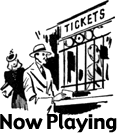| I sure as shit know all about horse races. You go to the track, you look at the numbers, you study the odds, and then you pick the horse with the funniest name, like "Cram It Cousin" or "Dippin' Willie." Then you do some math in your head: if I bet ten dollars and win at thirty to one, that equals boasting rights for six months, plus I can buy everyone a round at the Arvada Tavern. Though I'm unlikely to treat those bozos to anything. Instead I'd say, "Bartender, I just won a zillion dollars on a horse called ŽLicking Stick! Serve me a shot for every person in here, and let them watch me drink." Actually, I know more about dog races. That's where the real money is. I once won twenty-five dollars on a dog called "Maggot." Though that bought only ten beers and one of those little bottles of coconut rum (big mistake), I sure made the most of the bragging rights. In fact, do you recall that one time I totally cleaned up at the dog track? I am a very good gambler on dogs. Or horses, too. Same thing basically, just different-sized mounds of shit out back. Yes, a win like that can keep me going through any number of trips to the track where I blow Mrs. Filthy's "cookie-jar fund" and wind up swimming through dumpsters trying to find a winning ticket that someone might have accidentally thrown away. On the occasions that I fall asleep in there, I always have the sweetest dream that Maggot has just crossed the finish line first and has started licking my face. When I awake, I'm usually not so far from wrong. When I stumble home in the blinding light of a new day, the Mrs. is usually pissed, but if I loofah her stretch marks, she'll give me a second chance. And that's what Seabiscuit is all about: second chances. Based on the true story of the famous nag from the 1930s, Gary Ross' adaptation of the book by Laura Hillenbrand remains pretty faithful to history. Maybe too faithful. The movie opens and is punctuated throughout by History-Channel-style narration over black-and-white stills. As an opening, it's not bad, but the repeating intrusion, sometimes completely out of context, reminds me of jalapeno-powered flatulence. They could have farted out all the information they wanted about the roaring 20s and then let the story unfold, but instead, the gas keeps coming back, and the tale, clinging to real life like a Klingon on Uranus, keeps getting interrupted by bits about soup kitchens and FD fucking R. Jeff Bridges plays Charles Howard, Seabiscuit's owner. Howard starts out as a bicycle repairman in NYC, but escapes to San Francisco to start his own business, which goes quickly from bikes to cars (but not before the old-timey narrator farts in with a lot of good humor about Model A's). Bridges is in a class by himself when it comes to squeezing out feel-good moments, pithy sentiments, heart-warming humanity. On top of this, the character of Charles Howard also loves such moments. In spite of myself, I wasn't too repulsed by Bridges' constant ooze of schmaltz. Like I said, he's in a class by himself. Though Charles Howard makes his fortune quickly, family tragedies strike on the heels of The Great Depression, and Bridges turns on the pathos full force. At the same time, Red Pollard (Tobey Maguire) is growing up. Tough times force his family to turn him loose at an early age with nothing but a sack of classic texts. Red is smart, but he's also damaged. Though not too short, he's lanky enough to land a job as a jockey. His early employers are harsh, and he makes extra money by entering (and mainly losing) prize fights. Tom Smith (Chris Cooper) also appears on the scene. He's an old-time mustang wrangler who turns up in California in time to save a wounded mare from being killed. Sleeping outside and scraping by on his wits, he's seen as a kook by the folks who care for the horses at Santa Anita. But things all start to come together when Bridges, now in southern California, decides to buy a horse and spots Cooper out in the bushes. Bridges is constantly reminding us about second chances. He's remarried to a young woman (Elizabeth Banks), and we all know that love is sweeter the second time around. Stickier, anyway. So he gives Cooper a shot at being his trainer. Now all he needs is a horse and a jockey. At last, Seabiscuit enters the story. The stallion suffers from the horse equivalent of neurosis. He's been ridden harshly, condemned as lazy, and trained to lose races in order to build the confidence of other horses. But he's got a lot of spirit, which Cooper, the fucking horse whisperer, recognizes instantly. But ŽBiscuit doesn't want to be ridden. He attacks jockeys and rails against the reins. As fate would have it, Cooper notices young Red Pollard getting into a fist fight at the same time that Seabiscuit is having his tantrum. Though probably fictionalized, the connection takes a fucking eon of screen time. The audience chuckled at it as soon as the camera cut from screaming Seabiscuit to brawling Pollard. Cooper, on screen, takes another fifteen seconds to put it together, and the camera cuts back and forth between horse and jockey three more times before the movie finally gets on with the fateful meeting. What I'm saying is there's a shitload of "silver-plattering" in this movie. The movie gives everything formally, slowly, obviously, and repeatedly to make sure that even the retards in the special seats understand what's going on. Fine, I have nothing against retards unless they get so involved in a movie that they forget to go to the toilet to relieve themselves of all that coke and licorice. Next thing I know, I'm watching a movie in Smell-o-vision. But telegraphing messages like this, as well as all that farty narration, are what make this movie take 2 hours and 20 minutes. It's a plod, not a gallop. The last hour-twenty of the movie is like racing around and around the same track. The book, adhering to history, depicts a hell of a lot of races. Seabiscuit wins some and loses some, and we get either a big feel-good feeling or learn a life lesson after each one. When Seabiscuit loses, Bridges gets some time to wax maudlin about something or other, usually second chances. When Seabiscuit wins, Bridges gets all humanitarian and positive, demanding a race against War Admiral, known as the greatest horse of his day. Bridges links Seabiscuit with the common man: unextraordinary breeding, win one for the little guy, and all that crap. Nevermind that Bridges is a millionaire. Because the film doesn't have any real bad guys, War Admiral's owner, a tycoon called Riddle, is played (by Eddie Jones) as despicably as possible. An untimely racing accident pulls Maguire out of the fateful race, but it's taken Bridges so long to convince the stodgy east-coast millionaire to race War Admiral against Seabiscuit, that Maguire's jockey friend George Woolf (played by real-life jockey Gary Stevens) takes the reins for the exciting climax. Still in all, the film's not bad. For one thing, it's pretty to look at. The races are actually exciting. Cooper, Maguire and Stevens are genuinely likeable as characters and turn in credible performances. The documentary material is interesting if you can get over the fact that you've just paid $9.50 to watch The History Channel. And, shit, I just like horses! And racing too. Did I ever tell you about the time I totally cleaned up at the horse track? Actually the dog track. Three fingers for Seabiscuit. |
 |
|
Tony Toscano of Talking Pictures League of Extraordinary Gentlemen is "Extraordinary! Very, very cool! A fantastic adventure in the style of Raiders of the Lost Ark. " |
 Filthy's Reading Robertson Davies - The Deptford Trilogy Listening to Johnny Hodges - Jeep is Jumpin' Watching Night of the Hunter  |





